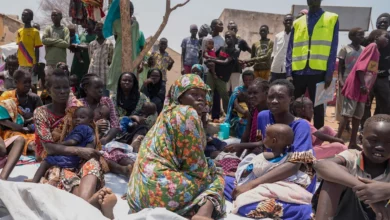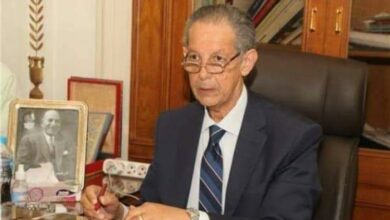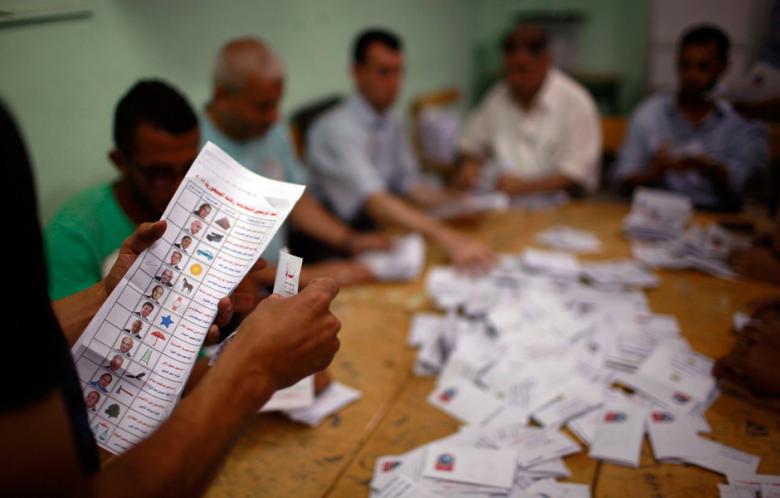(1)
The main appearances of the president have now come at the Youth Conferences, in which he answers the questions of those in attendance, reflecting part of what is going on in the Egyptian street; but I have a general remark on all of the president’s interviews and speeches, which I’ll start with. I will then relay remarks on the most recent interviews during the Youth Conference in Ismailia.
My basic observation is that the president is talking about an Egypt which we are not living in; an Egypt that is witnessing an unprecedented level of achievement; one that awaits only the participation of its inattentive sons to support it — that Egypt is the poor country that will overcome its helplessness with the determination it derives from the intention and optimism of Sisi.
Sometimes I wonder: is it my own shortcoming as a member of the audience, or is it the president’s speech itself? Why does Sisi seem optimistic, accomplished and diligent, while we do not find tangible and concrete results on the ground?.. Where did all this go? And what circles feel the achievements of the President, other than the governing bodies and those involved in such actions?
(2)
The dialogue in the youth conference in Ismailia, showed the pain of the citizens of Sinai and the cities of the Suez Canal, who spoke of the difficulties they face in their daily lives. However, the suffering is not limited to these cities, as all of Egypt feels it too.
The president was frank when he said: “What is allocated to spending on services is not enough;” meaning that the country is short-handed, and I can understand this. However, what I can not understand is the state’s vision of Sinai, as expressed by the brave Sinai young woman Shaimaa Mash’aly who cried as she talked about Sinai, her homeland, and what is said in the media about the sons of Sinai.
Talk show guests talk easily about displacing Sinai people from their home, and try to plaster terrorism to them, or at least claim that they hid information from state bodies. She was crying when she said “Where can we go?! It’s our land.”
But the crisis is not in the privately-owned media outlets, said Shaimaa, it is in the official vision of the state. The documentary film shown at the conference, which is the production of the Morale Affairs Deparment of Egyptian Armed forces mentioned only the cities of the Suez Canal. And as for Sinai, it mentioned the army raids on the terrorists in Mount Halal, as if the land of Sinai and its people could be reduced to these raids.
Shaimaa warned the President that the only solution in the Sinai is reconstruction and development, not displacement of the people, who remain the most capable of defending their land and their rights.
This is what we write about every year on Sinai Libration Day.
(3)
The president talked about his vision to combat unemployment by employing people in the construction sector, for which he mentioned the figures when he talked about 80 thousand working in the project of Galala city, in addition to those working in the projects of tunnels, ports, roads and the projects of the one million housing units.
The available job opportunities are in the construction sector, and the needs of this sector are limited to the workers and the engineers, and the beneficiary companies are the real estate, equipment supply, transport companies, and factories for building materials, etc. However, this is a very limited vision for employing youth, as many of them have different fields of study, far removed from these projects?
Then why does the state and the president focus on this sector alone? And why do they not plan for other sectors that may accommodate different groups of unemployed youth, such as electronic industries, which other coutries, such as India invested in, achieving remarkable success?
(4)
Apart from the problems of daily problems, such as the difficulty of extracting the certificate of proof of nationality, the cost of transportation, the employment challenges for top university graduates, the lack of food or building materials, etc., I did not find any questions from the youth who spoke to the president worthy of attention except one question from a youth who said she was afraid of confronting the president.
The question was: What would the president do if he failed in the 2018 elections? Sisi swore to God three times that he will not stay in power against the people’s will. He recalled that he only agreed to take over the presidency in obedience to the people’s desire in July 2013, in order not to give up on them, reiterating that he is not keen on his post.
The President implored Egyptians to vote in the upcoming elections, saying: “I love my country and whoever can serve it the best [will get my support].”
(5)
Then the president will run for a second term, and his only precondition is the desire of the Egyptians, and certainly there will be dozens of voices and thousands of citizens who will come out to demand and insist that he runs for the elections. The president has the right to run for a second term, and if he does, success will be his ally. But is what’s best for Egypt and its newborn democratic experience, and the attempt to reach social consensus?
The real problem in Sisi’s candidacy is that many dignitaries will not venture to run against him, because they realize that there is no hope in competing against him, with all the state institutions and media that support him.
This is the golden opportunity for Sisi to be the first Egyptian president to reject a second term, despite the availability of factors to garantee his success. Can Sisi choose on his own to come out of the spotlight?.. Can he choose to remain in the memory of the homeland as an example to millions who considered him the Savior and the Hero in one historic moment?




